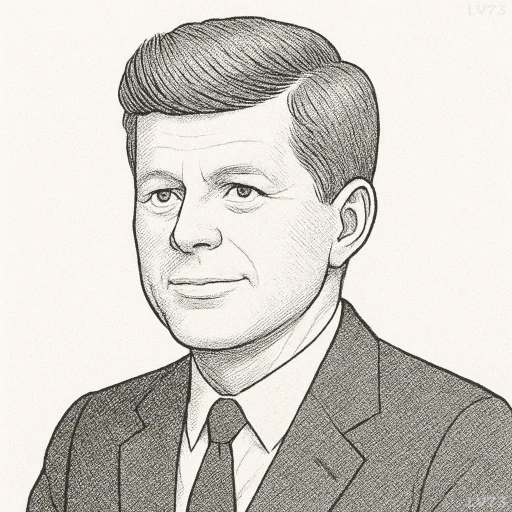“Let every nation know, whether it wishes us well or ill, that we shall pay any price, bear any burden, meet any hardship, support any friend, oppose any foe to assure the survival and the success of liberty.”

- May 29, 1917 – November 22, 1963
- American
- Politician
table of contents
Quote
“Let every nation know, whether it wishes us well or ill, that we shall pay any price, bear any burden, meet any hardship, support any friend, oppose any foe to assure the survival and the success of liberty.”
Explanation
This powerful statement by John F. Kennedy, made in his Inaugural Address in 1961, articulates the United States’ commitment to defending liberty and freedom at all costs, even in the face of immense challenges. Kennedy is making a bold declaration that the United States will not shy away from sacrifice or conflict in its role as a global defender of democratic values. The phrase “pay any price, bear any burden” speaks to the determination to commit the necessary resources—whether financial, military, or human—to safeguard the survival of liberty, not just within the U.S., but throughout the world. This speech came at the height of the Cold War, when tensions between the U.S. and the Soviet Union were at their peak, and the threat of global conflict was ever-present.
Kennedy’s message was a direct response to the geopolitical landscape of his time, where ideological divides between communism and democracy were driving global conflicts, from the Korean War to the Vietnam War. His words signal the United States’ resolve to counter the spread of communism and authoritarianism, and to support nations and movements that were fighting for their independence and democratic rights, even at great personal cost. The statement also underscores the U.S.’s commitment to not only confronting enemies but also to standing by its allies, making it clear that the survival of liberty was a shared responsibility that transcended borders.
In modern terms, Kennedy’s words still resonate as a reminder of the U.S.’s historical role in shaping global events. Whether in the defense of democracy in Eastern Europe, the Middle East, or through international institutions like the United Nations, the commitment to liberty and the defense of human rights remains a cornerstone of U.S. foreign policy. Kennedy’s statement could also be applied to current struggles, such as the defense of democratic values against autocratic regimes or the protection of human rights in conflict zones. His declaration reinforces the principle that the fight for freedom and justice is ongoing and may require extraordinary efforts to ensure its success on a global scale.
Would you like to share your impressions or related stories about this quote in the comments section?





